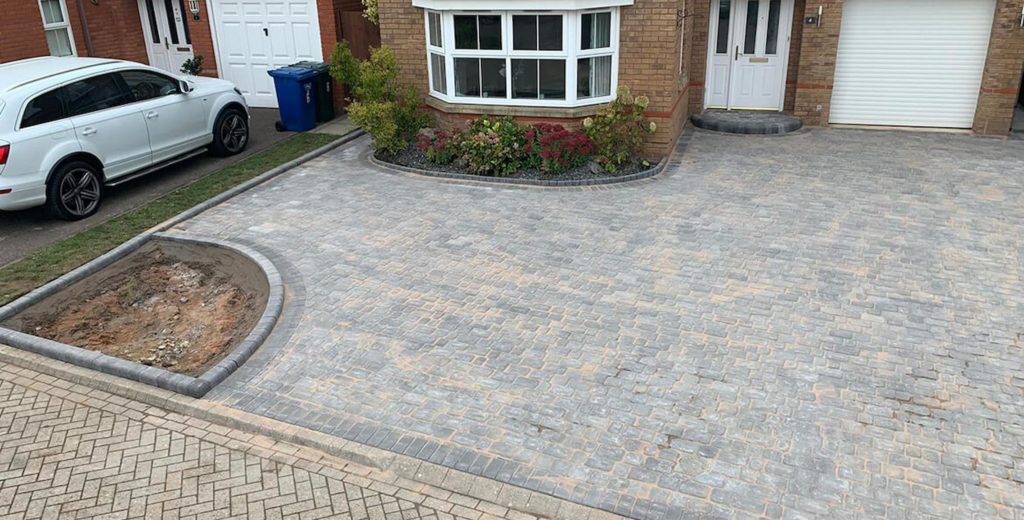
What Different Driveway Types Exist?
When choosing a new driveway material, comparing concrete paths with asphalt and others, consider the needs and costs of ongoing repairs. The three main costs you will have to pay for installing a new driveway are installation, material cost, and maintenance. The initial cost of a concrete driveway is higher than many other materials, but this investment can be recouped in lower maintenance costs. One of the things that makes brick one of the best alternatives for driveway paving is that it is cheaper than pouring and installing an asphalt or concrete driveway. Whether you’re looking to install a new driveway or repair seasonal damage, asphalt and concrete are two great options for your new driveways.
If it’s time to take care of your driveways Middlesborough or create a new one, you might be wondering which driveway to choose: asphalt or concrete. When thinking about the different types of materials contractors use, trying to decide which one is best for your unique situation and needs, you wonder why so many homeowners use asphalt as their paving.
Homeowners often use brick pavers to give their driveway a classy look. Single bricks or pavers are a high quality driveway material that combines high strength, aesthetic appeal and ease of customization. Concrete pavers provide the durability and stylish options your driveway needs.
Concrete is one of the most common driveway coatings due to its cost-effectiveness and longevity. While concrete pavers offer greater durability, brick pavers can still withstand the traffic flow generated by driveways. If you have the budget for a stone paver in your driveway, you may still want to consider a concrete paver. While concrete pavers remain a solid choice for homeowners, other paving materials, such as natural stone and brick, are also available as additional options for driveways.
When it comes to the most common materials used for driveways, older materials like concrete, stone, gravel and asphalt will still come out on top. Of course, the big three of driveway materials have always been gravel, asphalt, and concrete, but that doesn’t mean there’s only gravel when it comes to building a driveway. Here we look at 6 types of driveway materials and look at the cost, durability and maintenance of concrete, asphalt, gravel, pavers, stamped concrete and gravel to help you make the best decision for your home. There are usually several types of driveway materials available for your home, including gravel, asphalt, and concrete.
Your new driveway can be made from gravel, flagstones, asphalt, and concrete, all of which have their pros and cons. Once you’ve actually chosen the right concrete for your new driveway, you can choose between concrete block paving or patterned stamped concrete. Instead of plain concrete, you can make a properly installed concrete driveway unique by adding colourful stains or using a stencil to stamp patterns onto the concrete.
Not only does a concrete driveway tend to last longer than other materials such as asphalt, but concrete is also easy and durable to maintain. In addition to this natural looking material, its resistance to moisture, heat and water makes it a practical choice for a driveway.
The two types of asphalt are very similar but have a slight difference. Both types of asphalt are good, it just depends on the needs of the homeowner. Due to asphalt being only available in one colour, you don’t really have any customization options.
It is well known that concrete driveways Middlesborough can be stamped and painted to improve their appearance, but some may be surprised to learn that stamped and painted patterns also work on asphalt pavements. There are still many types and advantages of paving slabs suitable for driveways. Some materials that can be used for a driveway include concrete, decorative brick, cobblestone, paving slabs, asphalt, gravel, decayed granite, and surrounded by grass or another ground cover.
If there are obstacles to the construction of an asphalt access road, such as slopes, curves, or a body of water that needs to be rehabilitated, these costs tend to increase. If you’re installing a new driveway and intend to stay home for years, you might consider talking to your contractor about laying two separate layers of asphalt to create a driveway that can last for decades and decades. Replacing a driveway is not an easy DIY project – it involves pouring concrete and asphalt, tar, sealant – no matter how much you present yourself as a do-it-yourself home improvement expert, you will need to turn to the professionals. Sealants are more expensive than asphalt, but they tend to hold up better on heavy vehicles.